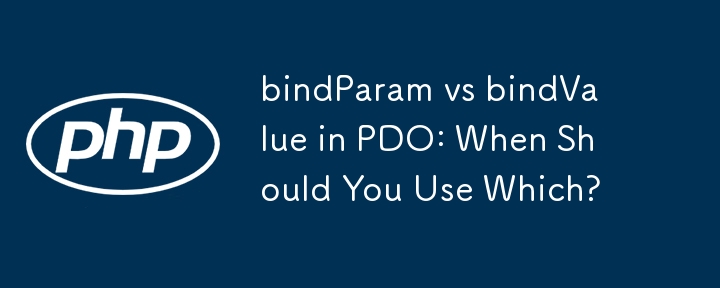

bindParam vs bindValue: Understanding Variable Binding in PDO
In the realm of PHP database programming with PDO, you may encounter two crucial methods for binding parameters to SQL queries: bindParam and bindValue. While both techniques allow you to assign values to placeholders in your queries, there are subtle but important differences between them.
bindParam: Binding by Reference
PDOStatement::bindParam() binds a PHP variable to a parameter in a query as a reference. This means that any changes made to the variable after binding will reflect in the query execution.
Example:
$sex = 'male';
$s = $dbh->prepare('SELECT name FROM students WHERE sex = :sex');
$s->bindParam(':sex', $sex);
$sex = 'female';
$s->execute(); // Executed with WHERE sex = 'female'In this example, despite re-assigning the $sex variable to 'female', the query will still be executed with 'female' as the parameter value because bindParam binds by reference.
bindValue: Binding by Value
On the other hand, PDOStatement::bindValue() binds the actual value of a PHP variable to a parameter in a query. Subsequent changes to the original variable will not affect the query execution.
Example:
$sex = 'male';
$s = $dbh->prepare('SELECT name FROM students WHERE sex = :sex');
$s->bindValue(':sex', $sex);
$sex = 'female';
$s->execute(); // Executed with WHERE sex = 'male'Here, bindValue prevents the query execution from being affected by the later re-assignment of $sex to 'female'.
Choosing the Right Binding Method
The choice between bindParam and bindValue depends on your specific programming needs. BindParam is preferable when you want variable changes after binding to impact query execution. Conversely, bindValue should be used when you want to lock in a specific variable value for the query.
Understanding the difference between bindParam and bindValue is essential for optimizing the performance and accuracy of your PDO queries.
The above is the detailed content of bindParam vs bindValue in PDO: When Should You Use Which?. For more information, please follow other related articles on the PHP Chinese website!




